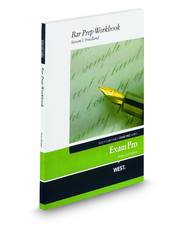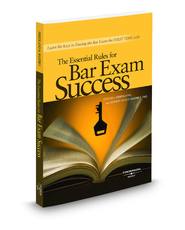
Bar admission is a two-part process that really begins in the Fall, when you put together your bar application. That application both serves as your registration for the July Bar Exam and the basis for your Character and Fitness review, conducted more-or-less contemporaneously. Bar Admission authorities tend to release results from the July exam around September, and perform the swearing-in in late October to late November. For the February exam, the scores tend to release in late April/early May, with the swearing-in shortly thereafter.
The process for admission to the bar varies by jurisdiction, but there are certain steps you can count on having to take regardless of where you apply:
The Bar Application
The bar application is usually completed over a long period during your last year of law school. Here, you will detail every event back to birth which may potentially impact your character and fitness to practice law. Typically, this will include any or all of the following:
As a general rule, the applicant is under a duty of candor and a duty to supplement. Lying on one's bar application--which includes wilful omission--is generally considered grounds for denial of the application, or--should it not be caught until after admission--any professional sanction up to and including disbarment.
Character and Fitness Review
Typically, the bar application is forwarded on to a reviewer in order to conduct what is essentially a background check. Your former employers, law school administrators, probation officers, etc., will be contacted to verify the information in your bar application. In addition, some jurisdictions require the applicant to undergo a personal interview with the reviewer.
Examinations
The examinations required for admission to the bar vary by jurisdiction as well. The bar examination is a two-day examination generally taking place on the final Wednesday of July and February and the Tuesday immediately preceding it. The prevailing pattern is for a state-specific portion of the examination to comprise the first day, and the Multistate Bar Examination the second. The "state-specific" portion may itself consist of one or more multistate examinations administered by the National Council of Bar Examiners (NCBE). Applicants who pass the bar examination are told merely that they have passed; those who fail are provided with their score, and how many questions separated the applicant from a passing score. There is often a limit to how many times one can sit for a bar examination within a particular jurisdiction.
Some jurisdictions also require, as an adjunct to the character-and-fitness process, a "passing score" on the Multistate Professional Responsibility Examination (MPRE). What constitutes a passing score is specific to the jurisdiction.
Swearing In
Assuming the applicant successfully passes all aspects of the admission process, he or she will be sworn in at a mass ceremony usually presided over by one or more members of that jurisdiction's court of last resort. The newly-minted attorney will generally need to register with any mandatory professional associations active in the jurisdiction (usually whichever one administers the attorney grievance process or oversees Interest on Lawyer Trust Accounts (IOLTAs)).
Law school is, for the majority of its students, a means to an end--that end being the bar exam. There is some merit to seeing law school as a three- (or four-) year long training course for the bar. Indeed, among schools themselves, bar passage rates are an important measure of the success of that school's programs. Accordingly, schools bend over backwards to assist their students with what is likely the most important test of their lives, whether by hosting bar prep programs, developing curricula that reflect local jurisdictions' bar subjects, or writing LibGuides like this one.
We've collected information on the bar examination process, from application to swearing-in. As we anticipate the primary users of this guide will be located in and around the State of Maryland, detailed coverage is limited to state bars with a high application rate locally--Maryland, DC, Virginia, Pennsylvania, and New York. We'll be looking at the application process, subjects on the state bars, timelines, bar prep companies, and notification dates.
 You Can Pass Any Bar Exam by
You Can Pass Any Bar Exam by 


Most bar applications require notarization.
Below is a list of notaries in the law school that can assist students with their bar application needs.
Latosha Davis, Email: ldavis@ubalt.edu in AL1006,
Laura Carter, Email: lcarter@ubalt.edu, in AL707,
Tiffany Ralph, Email: tralph@ubalt.edu in AL1112,
Terry Berk, Email: tberk@ubalt.edu, in AL200,
and, Laura Garcia, Email: lgarcia@ubalt.edu, in AL419.
Please write them an email to set up an appointment in advance.
Cochran, Rebecca A. Hope, Again: Hope Theory in Bar Exam Preparation [article].Duquesne Law Review, Vol. 48, Issue 2 (Spring 2010), pp. 513-532.
Cahill, Maureen. Raising the Bar - Preparing Students for Legal Research Questions on the Bar Exam [article]. AALL Spectrum, Vol. 14, Issue 1 (September/October 2009), pp. 20-21.
Moezzi, Melody. Prepare Yourself for the Bar Exam [article], Student Lawyer, Vol. 36, Issue 7 (March 2008), pp. 20-32.
Dennis Tonsing, Passing the Bar Requires You to Follow Advice [article], Student Lawyer,Vol. 35, Issue 12 (May 2007).
Dennis Tonsing. Don't Gamble on Passing the Bar Exam [article], Student Lawyer, Vol. 34, Issue 14 (May 2006).
Sorensen, Laurene. Secrets of a Bar Exam Survivor [article], Student Lawyer, Vol. 33, Issue 8 (April 2005), pp. 32-38.